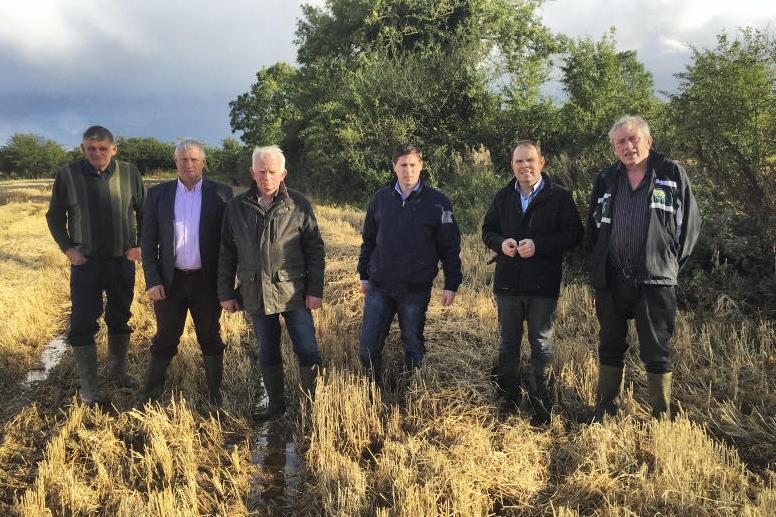There are divided opinions on how the European free trade agreement with Canada should proceed. In early July, the European Commission formally proposed the signature and conclusion of the Comprehensive Economic and Trade Agreement (CETA).
Despite having the power, under the Lisbon Treaty, to go ahead with the deal, the Commission decided to consult national governments in each of the member states.
At the time of the announcement, the Commission’s press statement said that CETA will be applied provisionally with formal approval “through a council decision with the consent of the European Parliament, and by all member states through the relevant national ratification procedures”.
Speaking to media after the council of European trade ministers in Bratislava last Friday, the Commissioner for trade, Cecilia Malmström, was confident that all things going well , the agreement will be signed on 27 October at the EU-Canada summit.
Irish Government
However, the Irish Government is apparently avoiding the question of whether it supports CETA. Just this week, the Minister for Foreign Affairs and Trade Charles Flanagan was asked in a parliamentary question “if he will reject the provisional application of CETA and ensure that a full Dáil vote takes place on CETA before there are any moves to bring it into effect here”. Minister Flanagan deflected Thomas Pringle’s question, stating that the “lead responsibility for the CETA trade agreement is held by the Department of Jobs, Enterprise and Innovation”.
The creation of a Permanent Investment Court, removed from any national accountability, for the benefit of international investors and multinational corporations, will infringe on our Constitution
Sinn Féin MEP Matt Carthy believes that a referendum is needed in Ireland to approve the Investment Protection Chapter in CETA as it breaches the Irish constitution.
“Independent legal advice I sought last April confirmed beyond any doubt that the content of the Investment Protection Chapter in the EU-Canada free trade deal, CETA, would require a referendum before it could be signed into Irish law by any Minister of State,” Carthy said. “The creation of a Permanent Investment Court, removed from any national accountability, for the benefit of international investors and multinational corporations, will infringe on our Constitution.”
What CETA means for agriculture
The agreement itself was concluded in 2014. If it is ratified later this year, the quotas agreed for food products will allow increased access to the EU market for Canadian beef and greater access to the Canadian market for EU dairy products.
Meat: The EU will grant total duty-free access to 50,000t carcase weight equivalent (CWE) of Canadian fresh and frozen beef. The total duty-free access the EU will grant to Canada for pork is 75,000t CWE. EU beef and sheepmeat market access into Canada will be fully liberalised at zero in-quota rates. Dairy: Canada will have duty-free access into the EU dairy market. For the EU, there will be a high-value cheese quota of 16,800t, with provision to allow newcomers including Ireland and other member states 30% access to the new quota. Tariffs on milk protein concentrate will be fully liberalised and the tariff on infant formula will be reduced from 8.7% to zero. “The concessions granted by Canada on market access for EU beef will be of benefit to Irish producers,” Minister for Agriculture Michael Creed said in response to a parliamentary question from Charlie McConalogue. “I am satisfied that Irish farming interests are sufficiently protected under this deal. However, I will continue to press to ensure that the cumulative impact of beef concessions under CETA and other trade agreements is closely monitored so that the approach continues to be in the best interests of the EU and Irish agriculture.”
There are divided opinions on how the European free trade agreement with Canada should proceed. In early July, the European Commission formally proposed the signature and conclusion of the Comprehensive Economic and Trade Agreement (CETA).
Despite having the power, under the Lisbon Treaty, to go ahead with the deal, the Commission decided to consult national governments in each of the member states.
At the time of the announcement, the Commission’s press statement said that CETA will be applied provisionally with formal approval “through a council decision with the consent of the European Parliament, and by all member states through the relevant national ratification procedures”.
Speaking to media after the council of European trade ministers in Bratislava last Friday, the Commissioner for trade, Cecilia Malmström, was confident that all things going well , the agreement will be signed on 27 October at the EU-Canada summit.
Irish Government
However, the Irish Government is apparently avoiding the question of whether it supports CETA. Just this week, the Minister for Foreign Affairs and Trade Charles Flanagan was asked in a parliamentary question “if he will reject the provisional application of CETA and ensure that a full Dáil vote takes place on CETA before there are any moves to bring it into effect here”. Minister Flanagan deflected Thomas Pringle’s question, stating that the “lead responsibility for the CETA trade agreement is held by the Department of Jobs, Enterprise and Innovation”.
The creation of a Permanent Investment Court, removed from any national accountability, for the benefit of international investors and multinational corporations, will infringe on our Constitution
Sinn Féin MEP Matt Carthy believes that a referendum is needed in Ireland to approve the Investment Protection Chapter in CETA as it breaches the Irish constitution.
“Independent legal advice I sought last April confirmed beyond any doubt that the content of the Investment Protection Chapter in the EU-Canada free trade deal, CETA, would require a referendum before it could be signed into Irish law by any Minister of State,” Carthy said. “The creation of a Permanent Investment Court, removed from any national accountability, for the benefit of international investors and multinational corporations, will infringe on our Constitution.”
What CETA means for agriculture
The agreement itself was concluded in 2014. If it is ratified later this year, the quotas agreed for food products will allow increased access to the EU market for Canadian beef and greater access to the Canadian market for EU dairy products.
Meat: The EU will grant total duty-free access to 50,000t carcase weight equivalent (CWE) of Canadian fresh and frozen beef. The total duty-free access the EU will grant to Canada for pork is 75,000t CWE. EU beef and sheepmeat market access into Canada will be fully liberalised at zero in-quota rates. Dairy: Canada will have duty-free access into the EU dairy market. For the EU, there will be a high-value cheese quota of 16,800t, with provision to allow newcomers including Ireland and other member states 30% access to the new quota. Tariffs on milk protein concentrate will be fully liberalised and the tariff on infant formula will be reduced from 8.7% to zero. “The concessions granted by Canada on market access for EU beef will be of benefit to Irish producers,” Minister for Agriculture Michael Creed said in response to a parliamentary question from Charlie McConalogue. “I am satisfied that Irish farming interests are sufficiently protected under this deal. However, I will continue to press to ensure that the cumulative impact of beef concessions under CETA and other trade agreements is closely monitored so that the approach continues to be in the best interests of the EU and Irish agriculture.”






 This is a subscriber-only article
This is a subscriber-only article










SHARING OPTIONS: